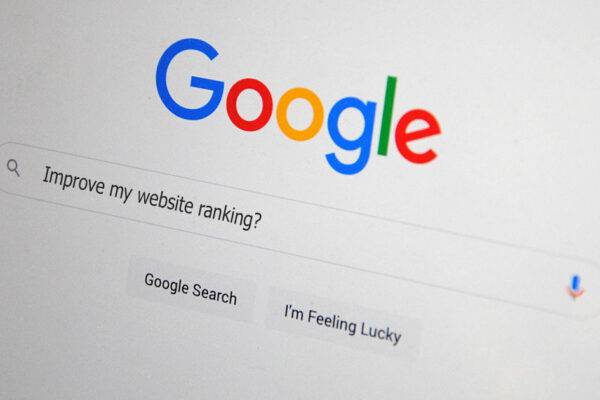9 ways to improve your website ranking

Filters
Results
9 SEO Best Practices to Boost Your Organic Website Ranking in 2023
Do you want to increase your website ranking and in turn the organic traffic to your website? Then, you need to make sure that your Search Engine Optimisation (SEO) game is strong. With the right SEO best practices, you can outrank your competitors and drive more people to your website.
Here’s 9 simple tips that will help you do just that.
1. Develop Content Based on Target Keyword Research
If you’re looking to increase website ranking and organic traffic, one of the most important things that you can do is target keyword research. When creating content, figure out which keywords are used most often by people who are looking for what you offer. Then, optimise your content with those words and phrases so that it appears when they search for them. This will help draw more visitors to your page and improve your ranking on search engine results pages (SERPs).
2. Use Compelling Titles and Headings
The titles and headings on your website should be engaging and attention-grabbing. They should also contain some of the keywords from your target keyword research. These will be the keywords you want your website ranking for. Doing this will help potential customers find what they’re looking for more quickly and easily, as well as make them more likely to click through from SERPs.
3. Write Strong Meta Descriptions
Your meta descriptions should be short but informative—they should tell potential customers why they should click through from SERPs rather than someone else’s page. Make sure that meta descriptions contain relevant keywords from your target keyword research as well as a call-to-action if possible. This will encourage users to visit your site instead of a competitor’s page.
4. Optimize All Images
Unlike us humans, Search engine crawlers can’t see images as we can, so all the images on your website must be optimised with descriptive alt text tags and captions whenever possible. This will help search engines understand what each image is about when they crawl your website. This means they can accordingly affect your website ranking in SERPs. And that could mean more organic traffic for you!
5. Include Several Internal Links
Internal links to relevant pages/content are essential for both users on your website and for search engines.
When linking, it’s important to choose anchor text that includes the primary keyword you’re linking to. This means that instead of using phrases such as “Read More” include the keyword for that page like: “Website Ranking”. This is so that search engines can better understand where the link is headed.
There’s no strict limit on how many internal or external links should be included on a webpage or in an article, but as a guideline, aim to include several internal links throughout the body of your content. In particular near the beginning when introducing new concepts or ideas. Make sure all your internal links are relevant to ensure a good user experience and ensure you don’t distract readers with too many links. Focus on creating meaningful connections between articles and provide value to your readers by linking to relevant content.
6. User-friendly design (on desktop and mobile)
With template website solutions these days, Design is often overlooked. This can be detrimental when optimising for search engines. But design plays a big role in helping users find what they’re looking for.
So make sure your website is easy to navigate, scroll and click on any device – from laptop to mobile. Use content management systems like Silverstripe and WordPress to ensure the user experience is consistent across all platforms with responsive design.
Don’t forget to put yourself in the shoes of your prospects and consider how they’ll be engaging with your content. One surefire way to increase the design element of your website and improve user experience is to use the services of a professional designer. A good website designer will help you get a great-looking website, which is on-brand but also easy to navigate.
7. Optimise Page Speed for better website ranking
Page speed is a key factor in Website performance. And therefore for improving website ranking and organic traffic. If a user has an poor experience with slow loading times or frequent errors, they won’t stick around long enough for their visit to count as “organic” in analytics reports!
To ensure an optimal user experience for visitors, use tools like Google’s PageSpeed Insights or Pingdom Website Speed Test to identify any issues with page speed. Then you take appropriate action, based on the results. Things that usually come up and need addressing, are: optimizing images or minifying code files.
Additionally, using caching techniques like server-side caching or client-side caching. These are things you may need help with from your web developer. If you have a website maintenance plan these may also be included in it, depending on the agreement. These things can greatly improve loading times by reducing unnecessary data requests every time a user visits a page!
8. Make Use of Navigation & Sitemaps
Navigation menus are essential elements of any website; they provide users with an easy way to explore different sections without having to type anything into a search bar or scroll through endless pages of content. Additionally, sitemaps provide crawlers with a comprehensive overview of all available webpages on a given domain name which makes indexing them easier (and faster!) than ever before!
9. Get Amongst Semantic HTML
Last but not least is semantic HTML. It’s a bit geeky, and maybe for the people who are into Pure SEO, but it’s important. Semantic HTML provides additional context around certain pieces of content such as headings (…) or paragraphs () which makes it easier for crawlers (and users!) To understand what text is saying without needing any special instructions from developers/designers etc… Plus, implementing semantic HTML also ensures that certain pieces of content look consistent across different devices/browsers etc – something which is increasingly important these days due to its wide range of viewing options available today!
SEO is critical to Website Ranking
Much like love and marriage… They go together like a horse and carriage. And this I tell ya, brother, you can’t have one without the other. Yep, Search engine optimisation best practices are essential if you want better website ranking and increased traffic.
From developing content based on target keyword research and writing strong meta descriptions to optimising all images and making use of navigation & sitemaps. These tips will help you get ahead of the competition. But make no mistake. It may sound simple, but it’s not easy! It takes hours of hard work and dedication – And you really have to be ‘in’ to it. If you half-ass it and your website sucks, it won’t convert. And if you try to take shortcuts, Google will find you and punish your website ranking for it. I suggest you look for an SEO agency. If you’re serious about SEO, then you will want to find the best SEO agency in NZ. And if you want to find out How to find the best SEO agency start with a google search, If they’re any good at SEO – then their own website ranking should be pretty good!
Ultimately though if you’ve been asking why is my website not ranking on google, then its time to change something! So don’t wait any longer – start implementing these SEO best practices today or find an SEO expert to help, so that you can start seeing results sooner rather than later!






